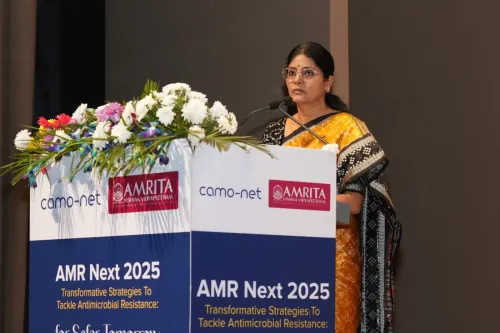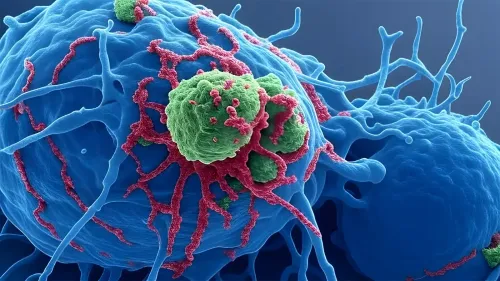New Genes Associated with Rare Diarrhoea in Children Discovered by Researchers

Synopsis
Key Takeaways
- Identification of three novel genes linked to CODE.
- Genome sequencing performed on 129 infants.
- 48% of cases successfully diagnosed.
- Potential for tailored precision treatments.
- Advances in understanding genetic pathways of the disorder.
New Delhi, April 3 (NationPress) A group of researchers from Canada has uncovered three novel genes associated with a rare form of childhood diarrhoea.
This uncommon condition, referred to as CODE (congenital diarrhoea and enteropathies), hinders the intestinal cells' function, leading to diarrhoea. It also inhibits infants from absorbing essential nutrients necessary for their growth and development.
The research team at The Hospital for Sick Children (SickKids) performed genome sequencing on 129 infants suspected of having CODE.
Utilizing advanced computational techniques and zebrafish models, the scientists characterized the functionality of these novel CODE genes.
The results were notably successful, yielding a diagnosis for 48 percent of the cases studied.
The research, published in the New England Journal of Medicine, identified three new genes linked to CODE: GRWD1, MYO1A, and MON1A, providing crucial answers for 62 families.
“The lack of diagnosis in infantile diarrhoea can lead to fatal outcomes; however, even when not fatal, early identification of such rare conditions can deliver significant answers to families,” stated Dr. Aleixo Muise, Staff Gastroenterologist and Senior Scientist within the Cell and Systems Biology program at SickKids.
“Thanks to this research, we can now offer a diagnosis to a greater number of families and advance towards precision treatments tailored to each child's unique genetic variation,” Muise added.
ODEs are linked with significant morbidity and mortality rates. While the management of these disorders is primarily supportive, innovative targeted therapies based on genetic findings include specialized diets, pharmacological treatments, and surgical options.
According to the team, a genetic diagnosis alone can bring comfort to numerous families.
They emphasized that comprehending the genetic and functional foundations of these conditions, including three new pathways, can further propel scientists towards targeted therapeutic solutions.
In addition to the genes identified, the research team found causal variants, including a new founder NEUROG3 variant, in 62 of the 129 infants (48 percent) with suspected congenital diarrhoeal disorders.









